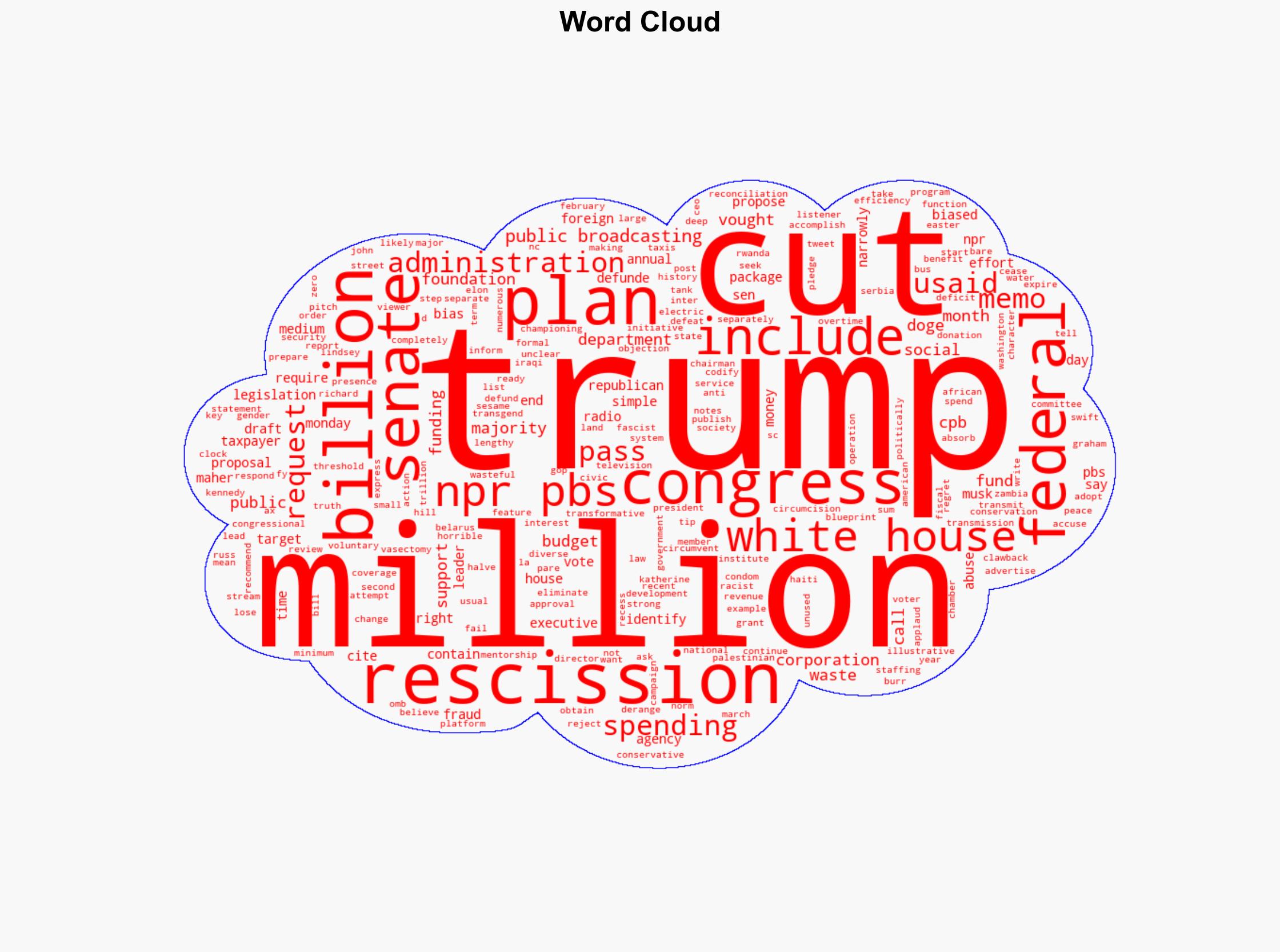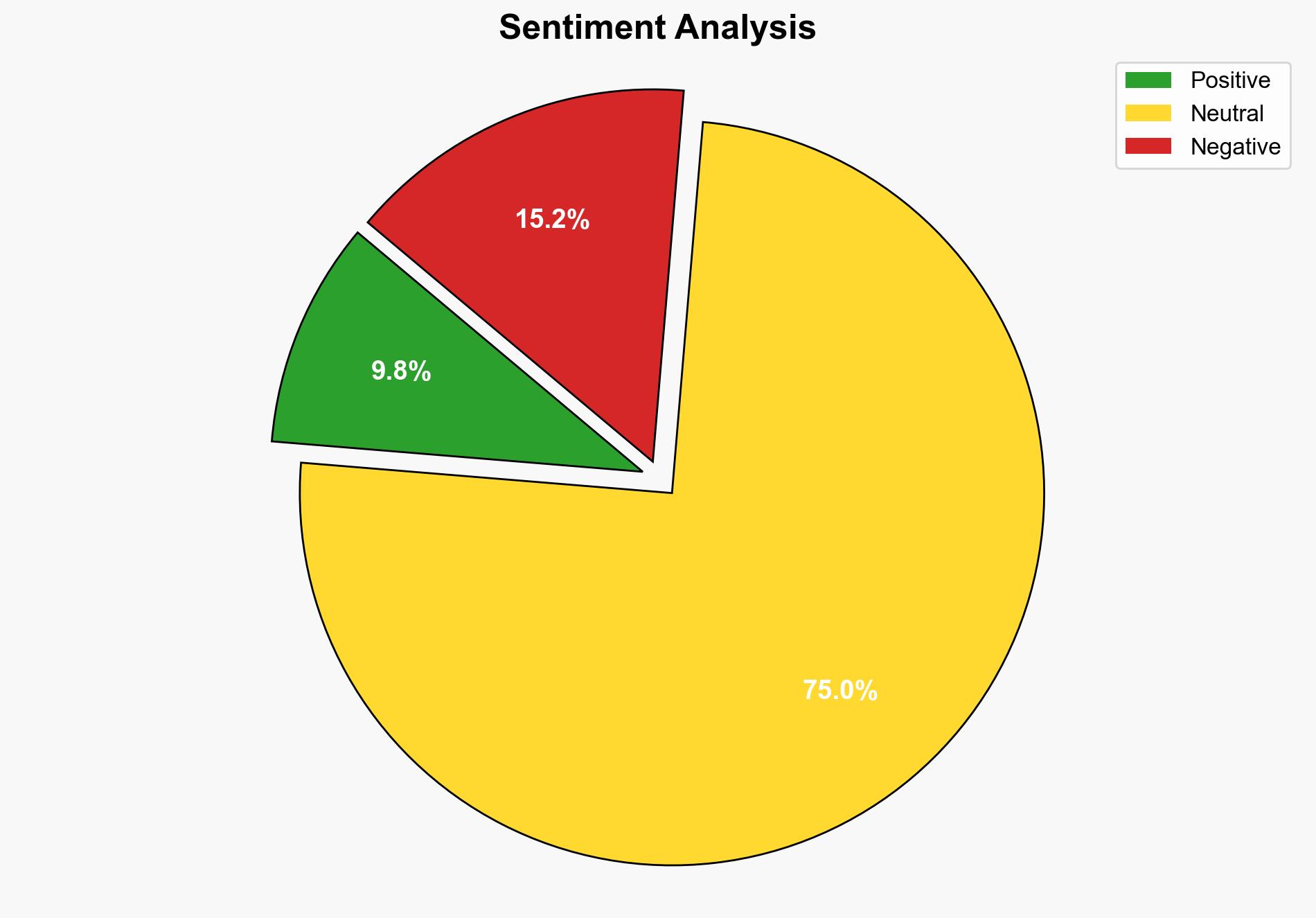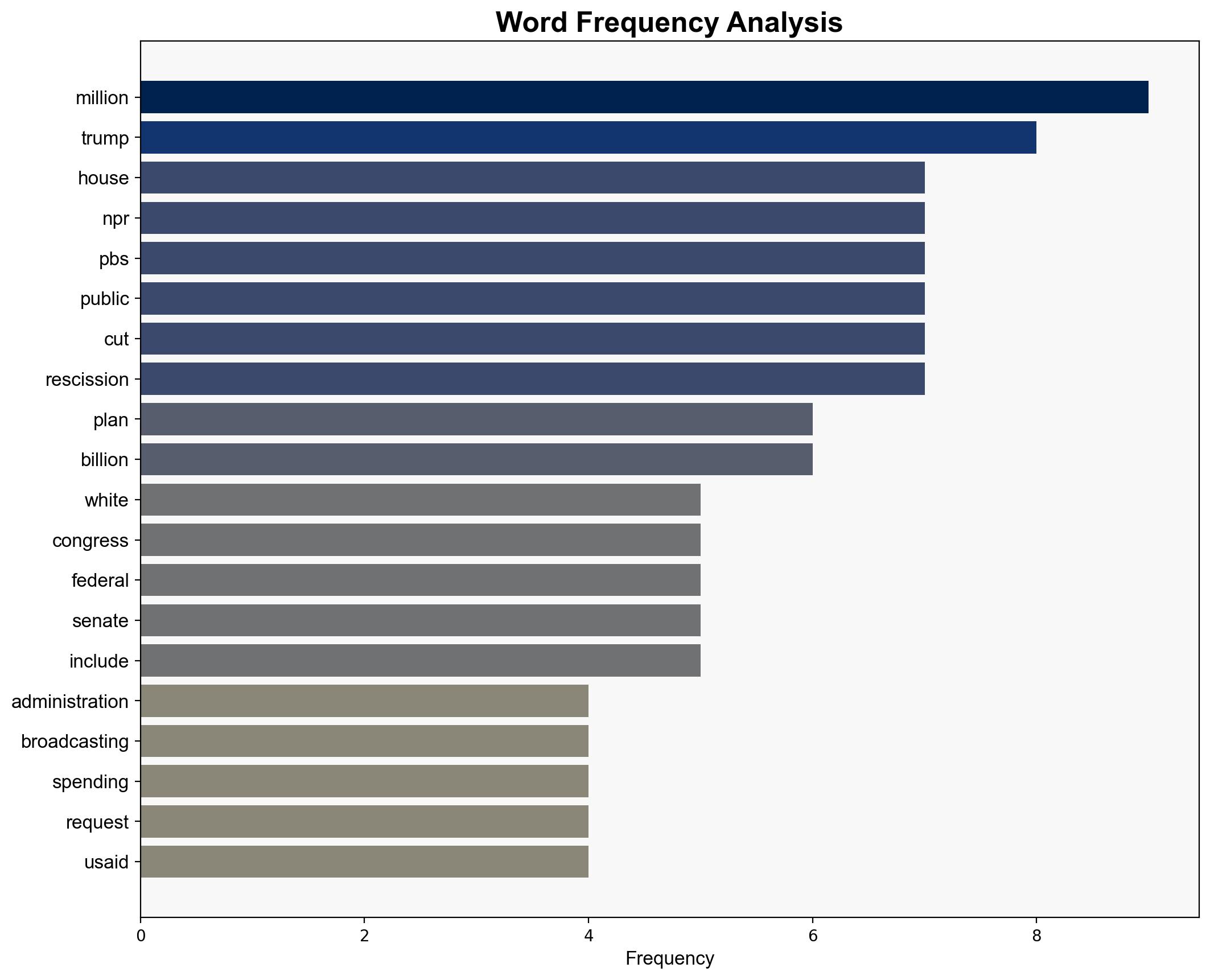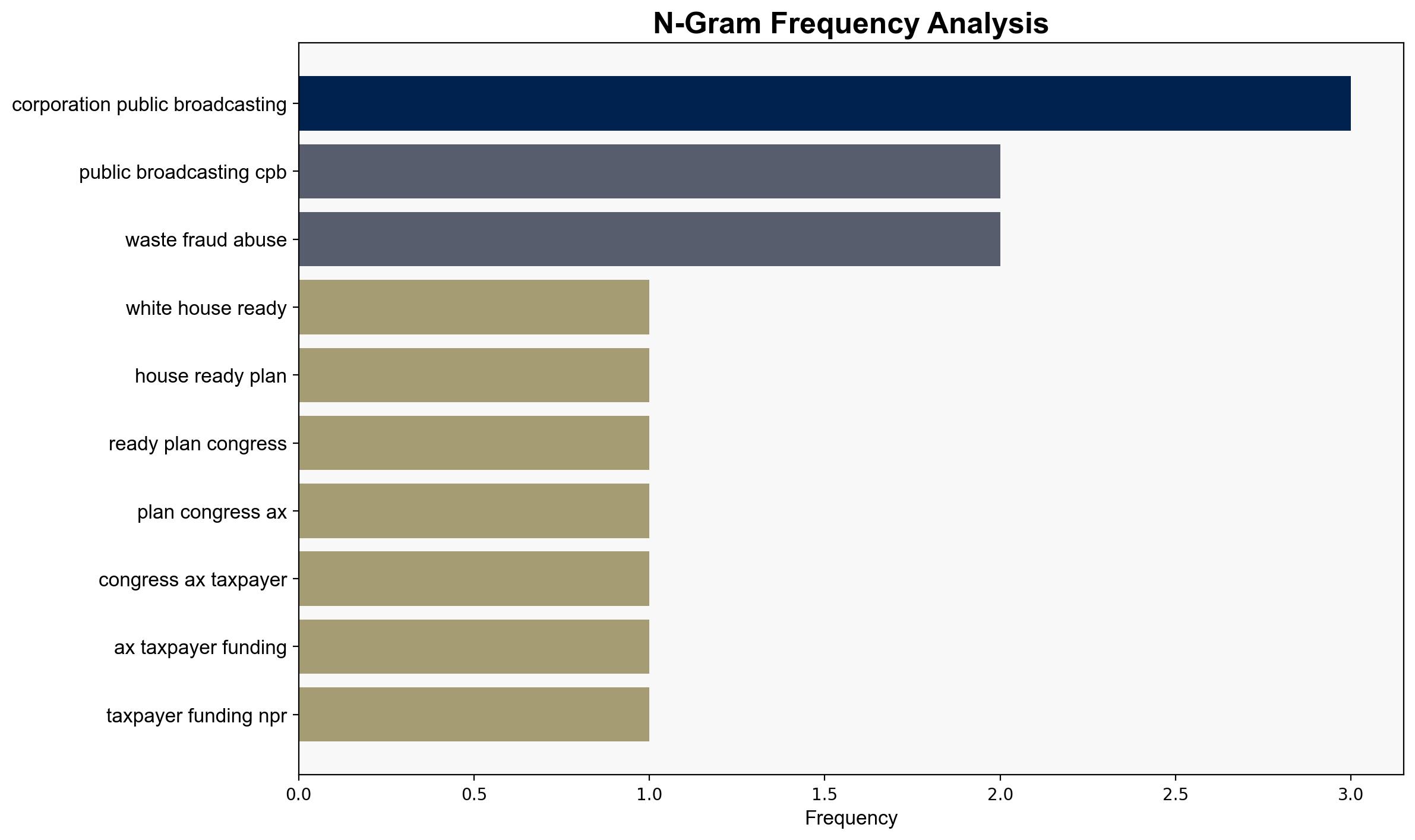White House sends Congress plan to ax all public broadcasting funds and codify DOGE aid cuts – New York Post
Published on: 2025-04-14
Intelligence Report: White House sends Congress plan to ax all public broadcasting funds and codify DOGE aid cuts – New York Post
1. BLUF (Bottom Line Up Front)
The White House has proposed a plan to Congress aiming to eliminate federal funding for National Public Radio (NPR) and the Public Broadcasting Service (PBS), alongside codifying cuts to foreign aid. The plan seeks to rescind $1.1 billion from the Corporation for Public Broadcasting (CPB) and $8.3 billion from USAID. This initiative is part of a broader strategy to address perceived bias and inefficiencies in federal spending. The proposal is expected to face significant debate in Congress, with a 45-day period for legislative action.
2. Detailed Analysis
The following structured analytic techniques have been applied for this analysis:
General Analysis
The proposal reflects ongoing tensions between the administration and public broadcasting entities, perceived as politically biased. The rescission plan is part of a broader effort to streamline government spending and address concerns over waste and inefficiency. The plan’s success depends on congressional support, which may be influenced by partisan dynamics and public opinion. The potential defunding of NPR and PBS could impact their operations, though both have diverse revenue streams that may mitigate immediate financial distress.
3. Implications and Strategic Risks
The proposed cuts to public broadcasting and foreign aid present several strategic risks. Domestically, the defunding of NPR and PBS could lead to reduced access to public media, impacting educational and cultural programming. Internationally, the reduction in foreign aid may affect U.S. influence and stability in regions reliant on American assistance. These actions could also exacerbate partisan divides and provoke public backlash, potentially influencing upcoming electoral outcomes.
4. Recommendations and Outlook
Recommendations:
- Engage in bipartisan dialogue to assess the long-term impacts of defunding public broadcasting and reducing foreign aid.
- Consider alternative funding models for NPR and PBS to ensure continued access to public media.
- Evaluate the strategic importance of foreign aid programs to maintain U.S. influence and stability in key regions.
Outlook:
In the best-case scenario, a compromise is reached that preserves essential services while addressing fiscal concerns. The worst-case scenario involves significant operational disruptions for NPR and PBS, alongside diminished U.S. influence abroad. The most likely outcome is a contentious legislative process with potential modifications to the original proposal.
5. Key Individuals and Entities
The report mentions significant individuals and organizations, including Elon Musk, Russ Vought, Katherine Maher, and John Kennedy. Key entities include the White House, National Public Radio (NPR), Public Broadcasting Service (PBS), Corporation for Public Broadcasting (CPB), and USAID.




